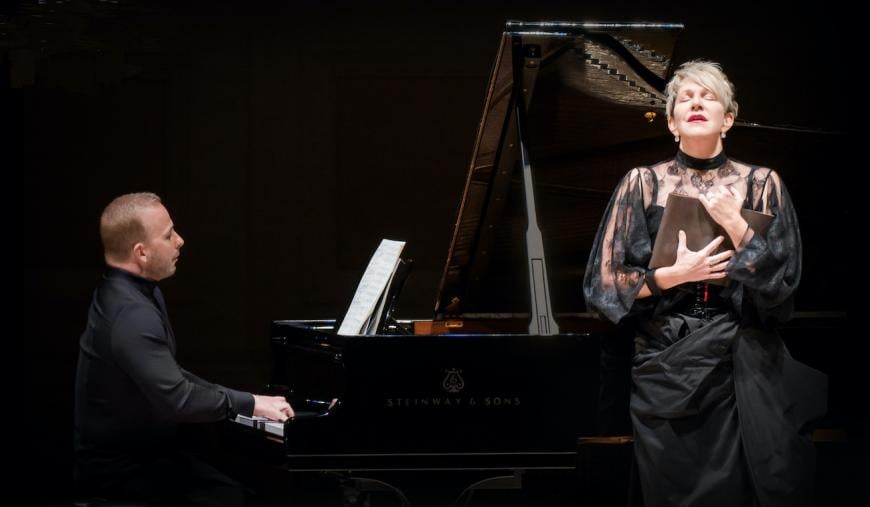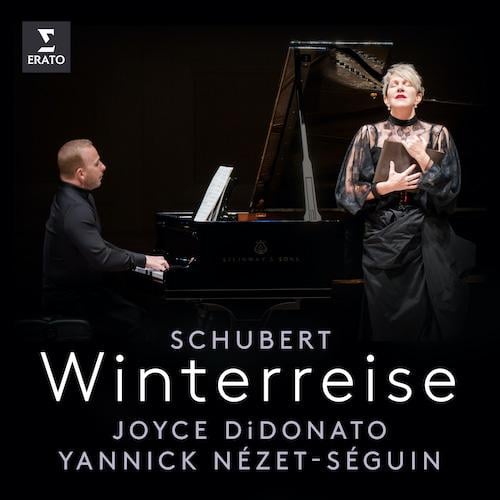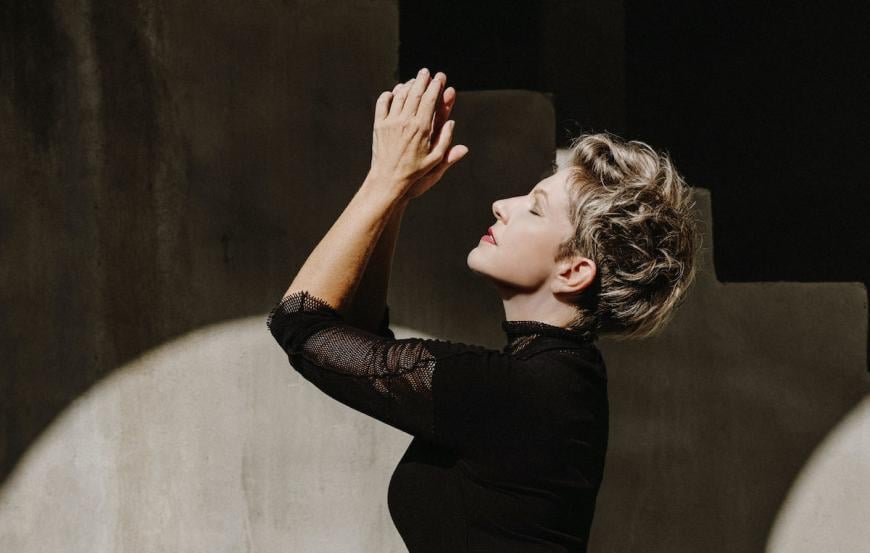
Initially, you might be puzzled by mezzo-soprano Joyce DiDonato and pianist/conductor Yannick Nézet-Séguin’s live Carnegie Hall performance of Schubert’s chilling Winterreise (Winter’s journey) song cycle, just released by Warner Classics/Erato. On several of the 24 songs, DiDonato’s emotions seem incongruously those of a suffering Italian bel canto heroine rather than a lovelorn young German man driven to despair and suicide. But if you read DiDonato’s five-paragraph liner note commentary, you’ll understand that DiDonato makes explicit what no one before her seems to have done: she sings from the point of view of the woman who was left behind.
“She must feel [his departure],” DiDonato writes. “She must surely wonder about him ... after all, she ‘spoke of love.’ Has she mourned his loss? Has she simply gone about her life as is expected of a girl of her stature? How has she moved forward in her life?”

Following her heart and gut, DiDonato created her own story from the cycle. In contrast to the best-known female interpreters of Winterreise on record — Lotte Lehmann, Christa Ludwig, Brigitte Fassbaender, and Nathalie Stutzmann — she sings, not from the perspective of a “male” or someone of “indeterminate gender,” but of the female lover who has received the young man’s journal by post “as a kind of suicide note.”
“What if he wanted her to understand him? To feel his pain? To experience his torment and despair? To force her to wander alongside him? And what if she reads the writings? Word for word. Over and over ... What happens to the winter’s journey when we feel it through the heart of the one who was the impetus of such agony and despair? The survivor. The one left behind.”
This is the unique Winterreise we hear — one that successfully gives voice to the invisible woman in the poems of Wilhelm Müller that Schubert set, and opens a new window on this heterosexual love affair with a tragic ending. Far from an exercise in speculation, it’s as deeply felt, utterly committed, and moving as any on record. Whether there was actually a full-fleshed woman in Schubert’s mind as he composed, or he instead imagined himself as the grief-stricken (homosexual) protagonist of Winterreise who would die young, before all that lay in his heart could be fully realized, is beside the point.
From the very first song, the pain in DiDonato’s voice is unmistakable. So is the special care she takes with dynamics and word painting. Fully inhabiting the woman who is reading the young man’s final journal, her heartbreak occasionally impels her to slow down as the young man’ words sink in.
Even in the two oft-excerpted “sweet” songs, “Der Lindenbaum” (The linden tree) and “Frühlingstraum” (Dream of spring), her mixture of joy and sorrow tears at the heart. The intensity never lets up, but never does it become overbearing, melodramatic or maudlin. Gone is the DiDonato of her early recorded forays into song, where she never fully managed to translate the very real feelings within her into sound. Instead, we encounter a woman unquestionably gripped by emotion. Listen to how deeply she feels her departed’s pain in “Rast” (Rest), and how she can barely hold back tears in the second verse of the final song, the “Der Leiermann.” (The organ grinder). The tone with which she sings her departed’s final words let us know in no uncertain terms that she is reeling from their sense of finality.

DiDonato has never sounded better. She moves flawlessly from mere whispers of sound to fortes with commendable ease, and dispenses the few quick figures that Schubert throws at her with the fluidity of a bel canto specialist. The recording itself is excellent, conveying the fabled Carnegie Hall acoustics and sense of occasion. In high-resolution file format — the format in which I auditioned the performance — a good sound system will enable you to hear a faint siren in the background at the end of “Die Post” (The mail coach), the occasional rumble of the New York subway, what may have been someone’s watch alarm at the end of “Mut” (Courage), and the relatively few coughs of audience members. For well over 99 percent of the time, your focus will remain on the superb, pitch-perfect artistry shared on December 15, 2019, just a few months before the pandemic ground everything to a halt.
Nézet-Séguin is DiDonato’s equal partner. The way he ends the second song, “Der Wetterfahne” (The weathervane) is as special as the manner in which he conveys the sense of flight in “Die Krähe” (The crow). He underscores the ominous essence of “Im Dorfe” (In the village), the mournful beginning of “Der Wegweiser” (The signpost), and the sacredness in “Das Wirtshaus” (The inn). Equally important, he knows exactly when to play the supportive accompanist and when to move to the foreground without attracting undue attention to himself. Of both him and DiDonato, one could ask for no more.




